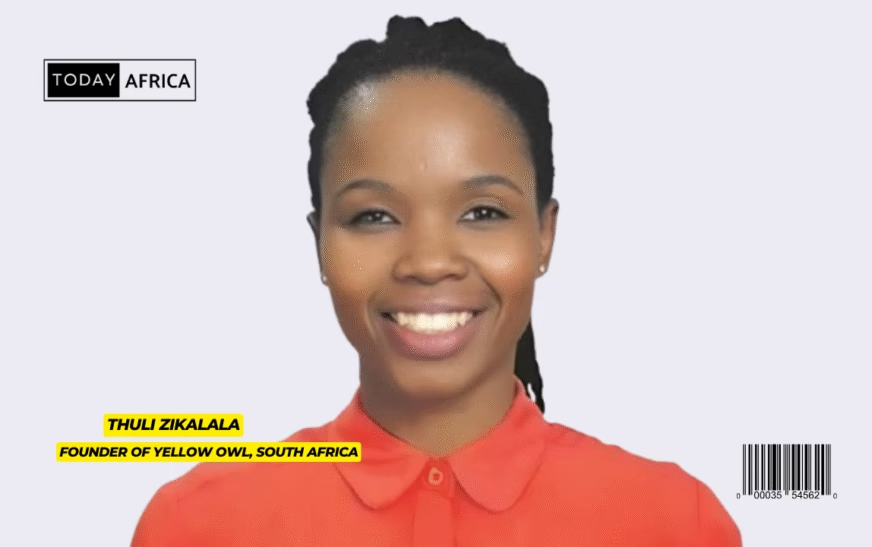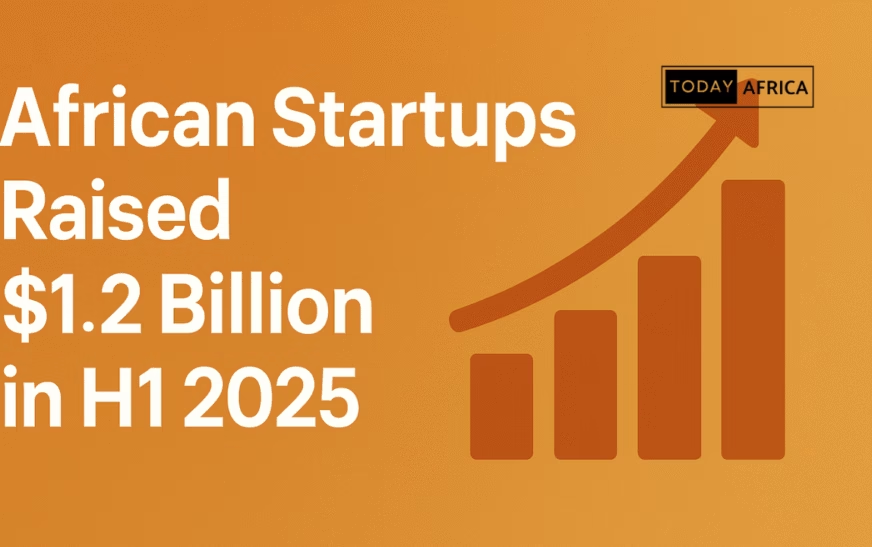When the world came to a standstill during the COVID-19 pandemic, many people paused their dreams. But for Thuli Zikalala, it was the spark that ignited her boldest move yet.
Leaving behind a stable corporate career, she launched Yellow Owl – South Africa’s first award-winning media platform designed to make podcasts, videos, and events accessible to the deaf community through South African Sign Language.
Thuli’s journey is anything but ordinary. Raised in a business-oriented family, she learned the value of hard work and entrepreneurship early on. But it was her fascination with sign language—despite not having any deaf relatives—that led her down an uncharted path.
In this exclusive interview with Today Africa, Thuli Zikalala opens up about her upbringing, what it takes to be a professional interpreter, and the moment she realized there was a massive gap in accessible content for the deaf community.
Tell us more about yourself
The first thing you notice about Thuli Zikalala is her presence, calm but electric, like someone who has spent a lifetime learning how to balance ambition with grace. She didn’t hesitate when asked how she would describe herself.
“I can describe myself as a bold, ambitious, and driven young woman,” she says with a confidence that feels earned. “I’m passionate about change. And I love being around like-minded people who are committed to driving positive change in society.”
Thuli is deeply rooted in her Christian faith—a compass she says informs her decisions—and draws strength from what she calls her “great support system.”
These twin pillars, faith and family, have carried her through moments of doubt and audacity, from a corporate career to entrepreneurship.
“Business is in my blood,” she says. “I come from a business family, so it was just a matter of time before I started my own thing.” That “thing” began in her bedroom in the middle of the COVID-19 pandemic, a moment of stillness that birthed movement.
In July, Yellow Owl, the sign language media house she founded, turns five. Her eyes glint as she reflects: “Believe it or not, July is actually the month of Yellow Owl. It’s an honor.”
Your experience of growing up in a business family?
Thuli’s earliest lessons in commerce came not from textbooks but from behind the counter of her father’s tavern. She was a teenager then, torn between duty and the tug of adolescent freedom.
“My father was the owner of what we call a tavern here,” she recalls. “On weekends when I wasn’t attending classes, I’d help him out—with stock, cashing, customer service, and administration.”
Her father ran a tight ship. At the time, she chafed against his rules. Parties and carefree outings were rare luxuries; Saturdays and Sundays belonged to the family business.
“There was no question about it,” she says with a laugh. “But at least I got paid. I learned how to save, how to be independent, to buy my own things, do my own hair, even buy my own phone.”
What felt like restriction then is now a reservoir of gratitude. “It helped me get out of trouble and stay focused. It gave me first-hand exposure and mentorship from someone doing it in real-time.”
That seed planted by her father has grown into a generational shift. “Now, years later, not only am I a business owner, but other people in my family are starting their own businesses too. They’re leaving the corporate world and taking risks in their industries.”
See Also: Why Divine Idokoh Believes Bees Can Save Nigeria’s Agricultural Sector
The moment you realized that content needed to be interpreted for the deaf community?
Thuli never imagined her journey would lead her to the deaf community. “Honestly, I didn’t know I’d end up being a qualified sign language interpreter,” she admits. Psychology was her major; she thought it would be her life’s work. But curiosity, as it often does, rerouted her path.
“I don’t have deaf parents. At the time, I wasn’t exposed to any deaf people. I learned the language from scratch. Every single day was practice.” The process was grueling, the stakes high. “People look at us now and think it’s easy, but it was a long journey of sacrifice and commitment.”
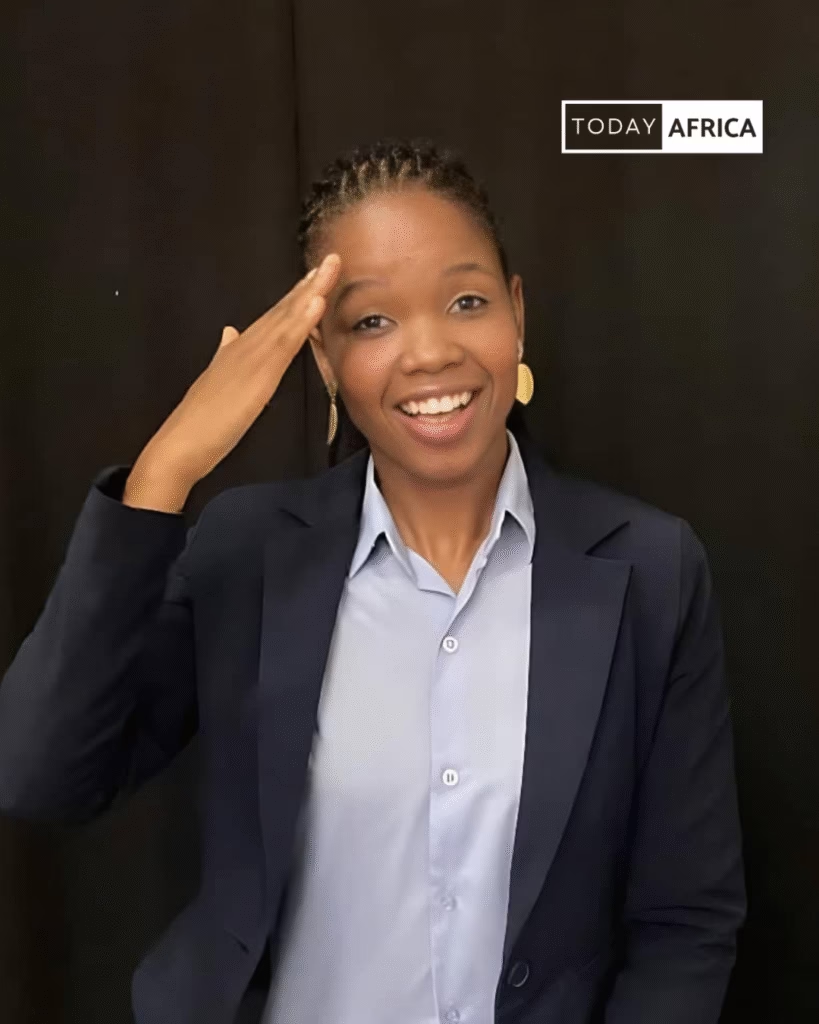
Then came the epiphany. As a creative herself—someone who loves podcasts, music, theater, movies—Thuli realized that the content she consumed wasn’t accessible to the people she served. “There’s a huge gap online—videos, webinars, podcasts. They’re missing out on so many stories. And no one was doing this in South Africa.”
That “aha” moment was terrifying. “Do I leave my 9-to-5, stable and safe, to do something risky?”
In 2020, in the middle of COVID lockdowns, she leapt. Yellow Owl was born. “We became the first to have a podcast in South African Sign Language. No one else had done it. And now, it’s award-winning.”
Looking back, she calls COVID both a blessing and a crucible. “If I had waited a week longer, I don’t think I’d be here today. Sometimes it’s just a spiritual window—if you miss it, you miss the opportunity.”
Why take such a leap, leaving a stable job and becoming an entrepreneur?
Thuli shrugs, as if to say her decision was less radical than it seems. “I had nothing to lose,” she says matter-of-factly. At the time, she was single, with no children and a few solid investments already in place—a house, a car.
“I’m fortunate. I have a very good support system. If something didn’t work out, I could always call my brother and crash on his couch, or call my dad. That’s a privilege not everyone has.”
But the tipping point was emotional. “Even if the money is good, if you’re dying inside, you can’t keep doing it. I couldn’t do it anymore.”
Tell us about Yellow Owl, your products, and your services.
Yellow Owl didn’t come from a boardroom brainstorm. It came from a moment of reflection in Thuli’s bedroom during the lockdown.
“Yellow is light, energy, positivity—that’s how I want people to feel around me,” she explains. “And the owl? Owls have big eyes. They’re associated with wisdom and knowledge. Sign language is visual; deaf people use their eyes to communicate.”
Together, the words became more than a name. They became a mission.
“Essentially, we offer professional South African Sign Language services. But we’re also a media house in the creative industry. We’re breaking barriers, collaborating with industries that have never worked with interpreters before—media, movies, theater, music. We’re trying to empower the deaf community so they can lead in decision-making.”
Her tone sharpens when she talks about inclusion. “Having an interpreter should not be an afterthought. Bring the deaf community on board from the beginning.”
What was the response interpreting Cliff Central’s Blind History podcast?
Thuli’s eyes soften at the mention of Blind History. “They were the first people who believed in me, who took a chance on me,” she says. She pitched the idea of making their podcast accessible to the deaf community, unsure if they’d bite.
“They liked it. We collaborated, incorporated sign language, and put it on YouTube. It caught so much attention—newspapers, TV interviews. We didn’t anticipate that level of success.”
The project went on to win the Social Media Silver Award. “It’s a very special accolade. It reminded us that the work we do is important.”
Read Also: From ₦30,000 Loan to Factory to Exports: Business Story of Adanne Uche
The biggest misunderstanding people have about sign language interpreting?
For Thuli Zikalala, one of the biggest battles she fights isn’t with clients or competitors—it’s with misconceptions.
“People think sign language is universal,” she says firmly, her eyes narrowing slightly, as if recalling how often she’s had to explain this. “There’s no one sign language in the world.”
She leans forward as though to draw you in closer. “We’ve got South African Sign Language, which is unique to South Africa. There’s American Sign Language, Nigerian Sign Language, Jamaican Sign Language… every country has their own, shaped by culture, politics, and history. Even within a country, dialects can differ.”
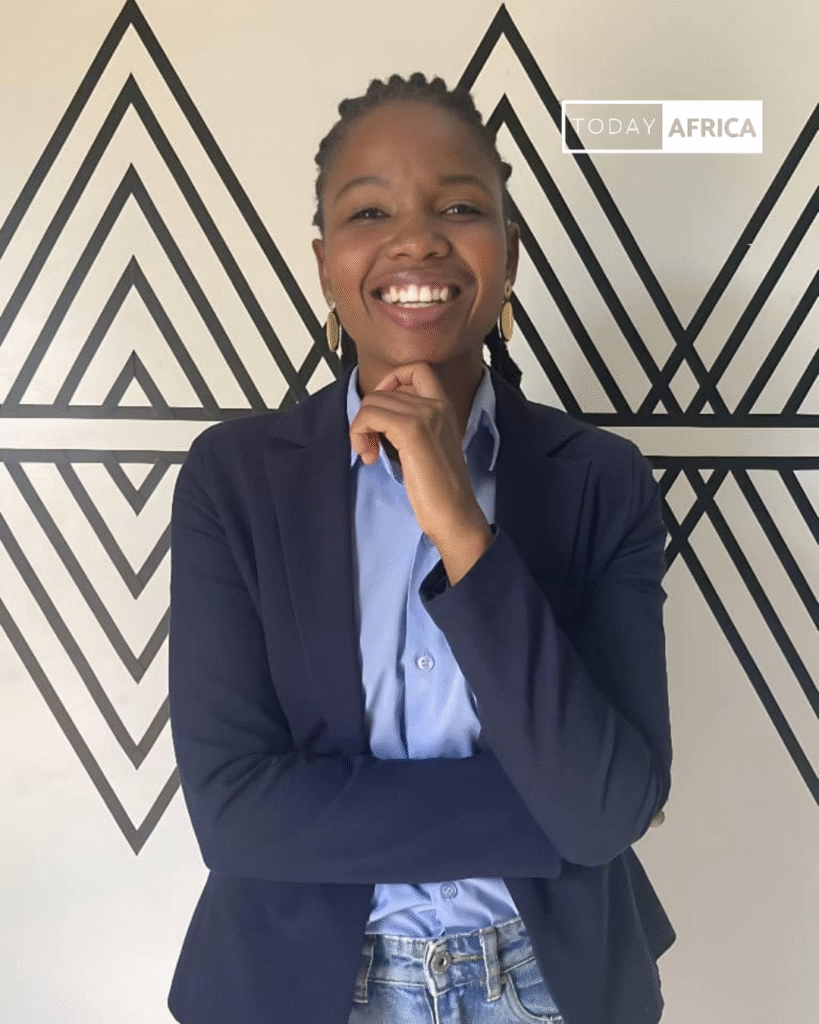
But that’s only the first misunderstanding. The second—and perhaps more damaging—is the belief that knowing a few signs qualifies you as an interpreter.
“Interpreting is a skill. You don’t just learn the basics of the language—the ABCs and short conversations—and then call yourself an interpreter. It doesn’t work like that.”
Her voice carries the weight of hard-earned authority. “To become a qualified interpreter, there’s a process. There are specific strategies and techniques to master. You need mentorship. You need trust from the deaf community.”
And then there’s the cultural aspect. “A lot of people who become interpreters grew up with deaf parents or family members. They’re called CODAs—Children of Deaf Adults. From childhood, they’re interpreting at banks, clinics, meetings. It’s part of their lives.”
She pauses. “So there’s this misconception that if you’re not a CODA, you can’t be as good. But that’s not true anymore. The industry is evolving. Now, even people without any deaf family members are becoming highly skilled interpreters. If you work hard, if you stay humble and keep learning, there’s no ceiling.”
How do you incorporate new words for the deaf community to understand?
Thuli’s face lights up as the question shifts to innovation within her field—a topic she’s visibly passionate about.
“This is such a great question,” she says, nodding. “Because even though it feels like we’re just talking about the industry, it’s so much deeper. We’re serving real people—people with identities, values, and emotions. And as interpreters, we’re cultural brokers.”
Her hands emphasize the words “cultural brokers” as though she’s laying bricks in a foundation. “We’re the bridge connecting communities. So when there’s new slang or trending phrases, we have a responsibility. It’s not just about finding a literal sign—it’s about staying connected to the culture, to the community we serve.”
There’s an ethical weight to her work, too. “We’re bound by a code of ethics. But even then, sometimes you’re faced with split-second decisions. What’s the right thing to do? How will this choice affect the deaf person, the interpreting profession, or even other interpreters watching you?”
Thuli smiles, almost wistfully. “When I do something, even as Thuli Zikalala of Yellow Owl – I’m aware I’m representing black interpreters in South Africa. I have to raise the standard because people are watching. If I get it wrong, it reflects on all of us.”
For her, staying connected means constant service. “Even now, with all the corporate success, media exposure, and travel, I still go back to basics. I volunteer. I make time for clients, no matter how big or small the job is. Because sometimes my presence gives them dignity and access to information they wouldn’t otherwise have.”
You once said, Thuli Zikalala is your personal brand, and Yellow Owl is your interpreting brand. Why was that clarity so important?
There’s a calm intensity in Thuli’s voice when she explains the distinction between her and her company.
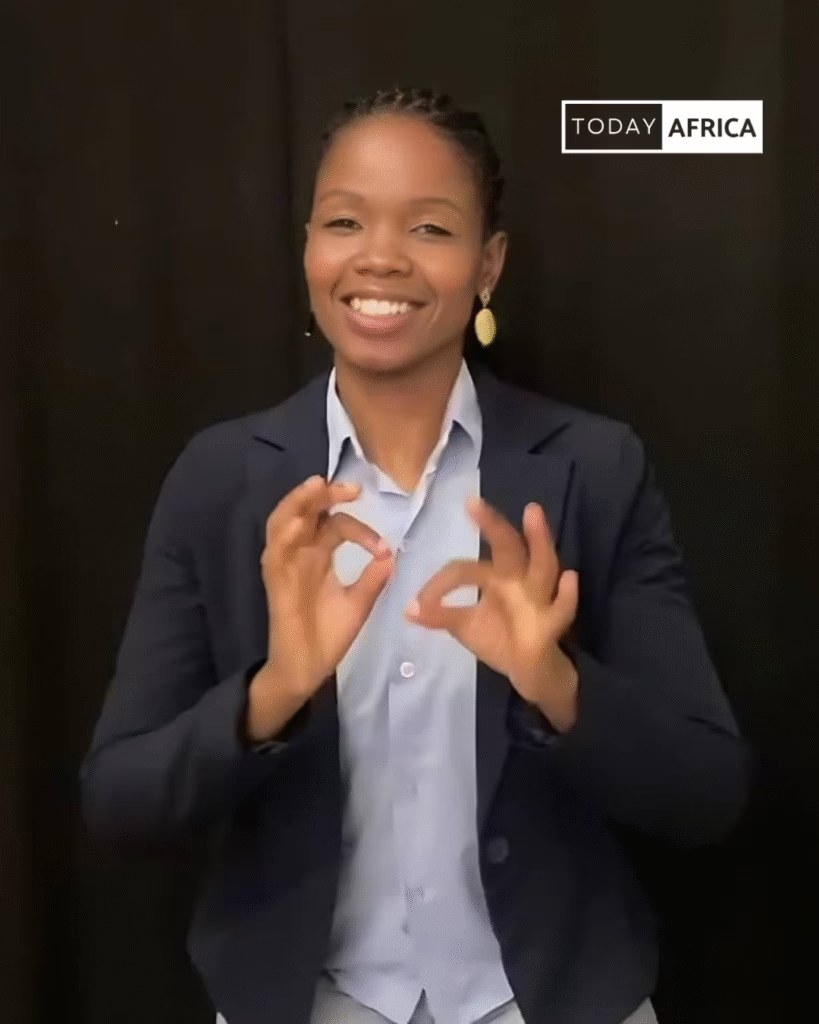
“I’m a person first,” she says simply. “Yellow Owl is the tool. It’s the platform that allows me to serve. But people connect with the real me first—Thuli Zikalala—before they connect with the brand.”
This clarity didn’t come by accident. Thuli saw early on how important it was to separate her personal identity from her professional role. “When I’m interpreting, I have to switch roles completely. It’s not about Thuli anymore. I have to embody the speaker, the setting, the moment.”
She gives an example. “The minute I start interpreting, my thoughts, my feelings, my distractions—what’s for lunch, how my cat is doing—all of that goes away. It’s lights, camera, action. Game face on.”
Then she adds, almost softly: “But once the meeting ends, and I leave the room, I can be myself again. That balance is critical.”
See Also: How Olamide Ilori is Building Africa’s Fintech Future Through Front-End Engineering
How do you factor in those who don’t understand sign language and don’t know how to read?
For Thuli, this question strikes at the heart of inequality. “We can only assume that everyone went to school,” she begins, her tone measured but urgent.
“But the reality is many deaf people haven’t had access to formal education. And there’s this dangerous misconception that deafness is linked to intellect—that if you can’t speak, you’re not smart. That’s not true.”
She explains how delays in language exposure ripple through a person’s development—affecting schooling, literacy, confidence, and even their sense of identity.
“I’ve been to rural villages where there’s no formal language at all. Deaf people there can’t sign because they weren’t exposed to it. They didn’t go to school. So how do you communicate? You can’t use fancy sign language—they don’t know it.”
Her solution is creativity and humanity. “You smile and use your eyes, gestures, objects, pictures. You slow down. It’s not about showing off your skills—it’s about connecting with the person in front of you.”
How do you build trust with clients who’ve never worked with a sign language interpreter?
Thuli exhales, as though recalling the countless times she’s had to break through skepticism.
“Building trust is hard,” she admits. “People don’t think about deaf people. So when I pitch to clients or event organizers who’ve never worked with an interpreter, they don’t see the need. They question our rates—‘Why are you so expensive?’”
She shakes her head slightly. “What they don’t see is the work behind the service. We’re professionals. It’s a qualified skill, like being a doctor or engineer.”
Recent changes in South Africa’s legal landscape have strengthened her case. “Now that South African Sign Language is officially the 12th language, it’s a human right to have interpreters. Not providing access is a violation.”
But trust, she insists, comes from consistency. “It took me years to build a reputation. Deaf people know me. They know my face. They vouch for me. That kind of trust doesn’t come overnight.”
She pauses and smiles. “And even now, I’m still learning. I still volunteer. I still make mistakes and I still get nervous. It never stops.”
What makes interpreting a podcast different from interpreting a live event?
“Interpreting generally means taking spoken words and delivering them visually. Translation is for documents. Interpreting is live—a keynote address, music, a conversation.”
In her view, podcasts aren’t so different from live events. “As long as people are talking and you can hear what they’re saying, you can interpret it visually.”
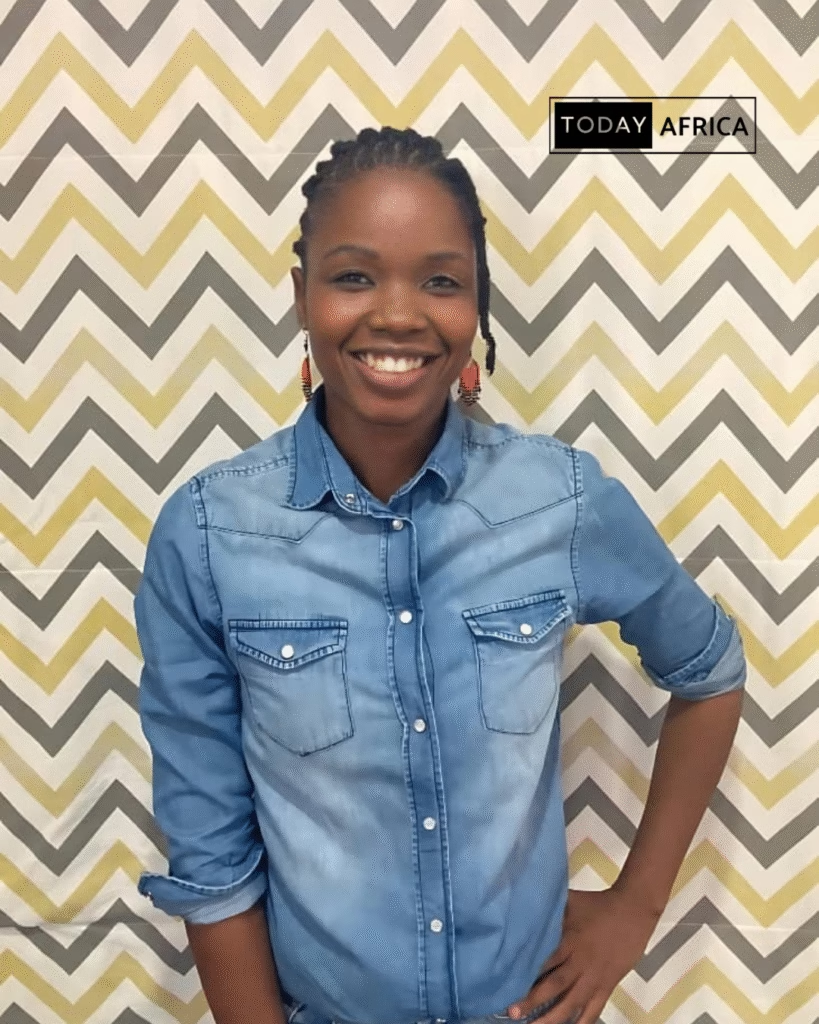
But there are nuances. “Clear lighting matters. High-quality visuals are important because deaf people are very sensitive with their eyes. We try to remove any distractions—like pretty earrings.” She smiles, tugging at her lobe as if removing the imaginary jewelry.
“The journey is long,” she says. “But in the end, it’s about making information inclusive and accessible. That’s the goal.”
Read Also: Why Atamelang Free Said No to a 9–5 and Built a Skincare Brand Instead
What are the trends shaping the sign language industry?
She leaned back slightly, a wry smile playing on her lips. “This is a very controversial question you’re asking,” she said, almost conspiratorially. “I hope I don’t get into trouble for saying this.”
For years, the industry had been ruled by unspoken rules. “Believe it or not, social media and the internet were prohibited back in the day. As interpreters, we weren’t allowed to post or share information. You didn’t exist—you weren’t a brand.”
But she broke the rules. Boldly, unapologetically.
“The world is changing. Media is changing. Information is changing. And yet there’s no creative input, no creative license. You couldn’t express your thoughts or bring up ideas to advance the industry. But I questioned all that.”
South Africa, she admitted, still lags behind. “Other countries like America are slightly more advanced in legislation, awareness, services, and access to interpreters. Here, we’re still unsure why we even need interpreters. There’s always pushback.”
Yet, she sees hope in technology. “Social media and the internet are big game changers. AI is huge now. There are devices, VR, and even gloves or masks that can replicate hands and faces—it’s like an interpreter who’s there but not really there.”
Video conferencing, too, is transforming access. “Imagine you’re in an emergency. How do you have 24/7 access to an interpreter or someone who can pick up your call and say, ‘She’s in hospital, she needs help.’ More and more of these trends are coming up.”
What infrastructure or tools keep Yellow Owl running?
Yellow Owl is five years old—“still a baby,” she said with a laugh. “Five years old is like grade one, grade R? I’ve got a long way to go in business.”
Though she’s an experienced interpreter, business was a new terrain. “I made a lot of mistakes. But the only thing that’s helped me come this far is my confidence, my boldness, being creative, and collaborating with other people. On my own? I can’t do it.”
Her survival kit includes mentors, accelerator programs, workshops, and an insatiable curiosity. “You sign up for events, ask someone to mentor you so the learning doesn’t stop. Find resources online, get books, read about systems. Stay in touch. Keep your finger on the pulse about the latest trends and technology.”
Yellow Owl isn’t just about interpreting. It’s about building an ecosystem that can support a new generation of professionals.
What would you change if you could make SASL interpretation mandatory?
For her, the small “interpreter box” in the corner of a TV broadcast is a symbol of how much work is left to be done. “South Africa is still far behind in awareness and understanding the industry, the deaf community, and the profession of sign language interpreters.”
Her vision is sweeping: interpreters on every platform. “In a perfect world, that’s my biggest dream. Having interpreters on TV shows, movies, videos, national broadcasters, and online platforms. Everywhere.”
She is particularly passionate about deaf interpreters. “Right now, most interpreters are hearing—people like me. But there are deaf interpreters who can do it better than us. It’s their native language, their lived experience. Having deaf interpreters working together with hearing interpreters, starting businesses, leading…that would be very exciting.”
Subtitles, too, play a part. “It’s a lot of work in editing, but it’s worth it. It ticks the boxes of creating inclusive and accessible information where everyone can engage and be empowered.”
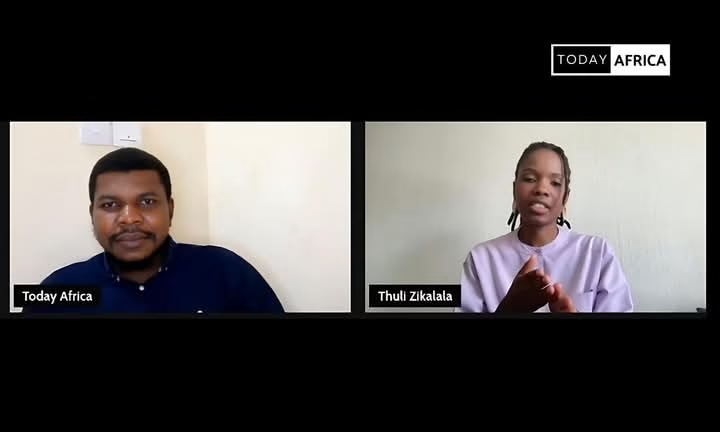
What has been your toughest decision as a founder?
Her role carries weight. “Remember I said there’s only a handful of people who do what I do. I’ve got this huge ethical responsibility to make decisions that go beyond me. I have to think about how they affect the client, the industry, other interpreters, my name, my brand.”
Sometimes, that means turning down lucrative offers. “Clients ask me to teach them sign language. They’ll pay me good money. But I say no—it’s not ethical.”
Why? “Because it’s not my first language. I’d be taking power away from deaf people who can teach it better. A better approach is to partner with a deaf person and let them teach, the same way I learned from a deaf teacher. I wasn’t born signing.”
She recalled the global embarrassment at Nelson Mandela’s funeral, when an unqualified interpreter fumbled on an international stage.
“Even years later, we’re still talking about it. It was a wake-up call for vetting systems and the urgency of doing things right. My decisions can either advance the industry or push it back ten years. That’s a huge responsibility.”
Read Also: Startup Stories of 16 African Entrepreneurs We Interviewed
How were you able to learn sign language from a deaf person?
She smiled, remembering her early days as a learner. “I didn’t know the language, so I had to adapt. Pen and paper, writing things down—that’s where we started. Communication is beyond words. You use your hands, your eyes, even drawings.”
Contrary to stereotypes, she said, “Deaf people can read. They can drive. They can lead normal lives. There’s no mental disorder linked to being deaf. Some people can lip-read too. And not everyone is born 100% deaf—some lose their hearing later in life. So you must never assume.”
She stressed the importance of flexibility. “Maintain eye contact. Speak clearly with your mouth. Let them guide you. Eventually, your mind and your eyes get used to it. It’s a muscle—you practice, and one day, you’re fluent.”
Where do you see Yellow Owl in the next five years?
COVID-19 forced her into the spotlight. “We became one of the only handful of people doing what we do.” But now, she’s thinking bigger.
“It’s time to bring others on board. I want to build a team of interpreters at my level. There’s so much opportunity, so much work to be done. I can’t do it all alone.”
Mentorship is key to her vision. “Not everyone had the privilege I had—schooling, exposure, travel. With my network, I want to open doors and bring as many people along as I can.”
Her ambitions stretch beyond South Africa. “I’ve traveled to Jamaica, Mexico, America. Seeing how others do it opens your mind. You take what you’ve learned and bring it back home to uplift the industry and the community.”
At the heart of it all is a simple but radical idea: empowering deaf people to lead. “It’s time for my friends—people I see with so much potential—to start their own businesses. Yellow Owl wants to invest in that.”
The journey is long. But for her, every sign, every conversation, every partnership is a step closer to a world where access isn’t a privilege—it’s a given.
“Yellow Owl is not just a business,” she says, her voice steady. “It’s a movement. It’s about breaking barriers, spreading light, and reminding people that access to information is a human right.”
In a world where the deaf community is too often overlooked, Thuli Zikalala has chosen to stand in the gap, not as a savior, but as a servant. And in doing so, she’s building a legacy far louder than words.
Contact or follow Thuli Zikalala:
Leave a comment and follow us on social media for more tips:
- Facebook: Today Africa
- Instagram: Today Africa
- Twitter: Today Africa
- LinkedIn: Today Africa
- YouTube: Today Africa Studio

